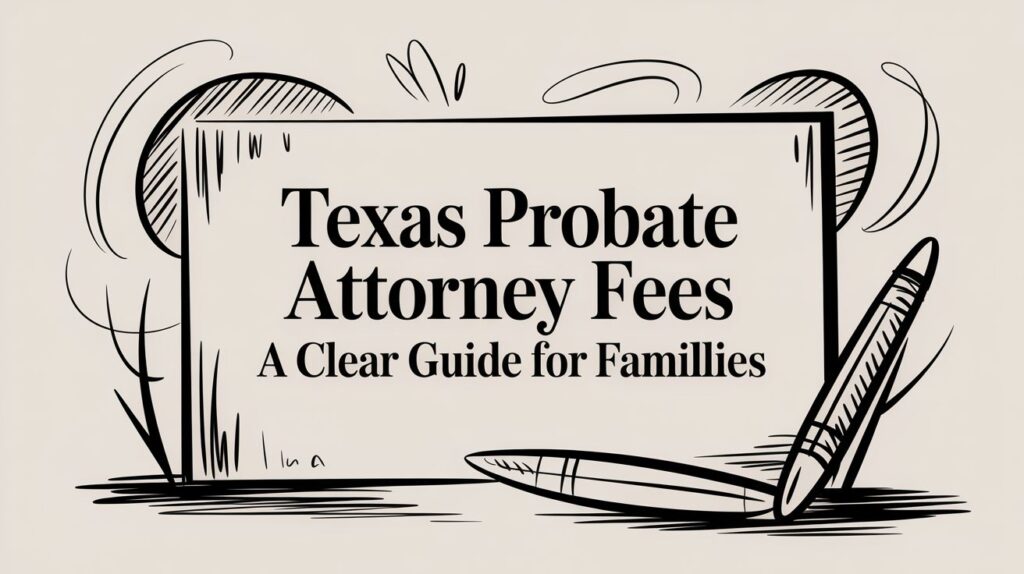When dealing with the probate process in Texas, certain unique challenges arise when the property involved is located in a Special Flood Hazard Area (SFHA). These areas, designated by the Federal Emergency Management Agency (FEMA), have a high risk of flooding, impacting property ownership, transfer, and management. Managing real estate within these zones requires understanding both probate law and the nuances of floodplain management, insurance obligations, and the legal obligations tied to maintaining or selling the property. In this article, we’ll explore Texas probate law in the context of real estate located in SFHAs, detailing probate steps, insurance issues, flood management requirements, and potential obstacles faced by executors, beneficiaries, and property managers.
1. Overview of Texas Probate Law
Texas probate law governs the distribution of assets from a deceased person’s estate, ensuring the orderly transfer of property to heirs and creditors. Probate is a court-supervised process, where an executor (named in a will) or an administrator (appointed by the court) manages the decedent’s estate according to Texas probate codes and procedures.
The probate process in Texas involves several key steps:

- Filing a Will with the Court: When a person dies, their will (if one exists) is submitted to the local probate court. The court reviews the will for validity.
- Appointment of Executor or Administrator: If there’s a valid will, an executor is appointed. If not, an administrator is selected based on Texas intestacy laws.
- Inventory and Appraisal of Assets: The executor or administrator must take stock of all assets, including real estate, and determine their value.
- Debt Settlement: All debts, including any tax obligations, must be resolved before property can be distributed.
- Distribution of Assets: Once all debts are settled, the remaining assets are distributed according to the will or, if no will exists, according to Texas intestacy law.
When real estate within SFHAs is part of an estate, these steps are complicated by additional requirements for floodplain management, insurance, and environmental regulations.
2. Special Flood Hazard Areas: Definition and Challenges
Special Flood Hazard Areas are zones at high risk for flooding, identified on Flood Insurance Rate Maps (FIRMs) created by FEMA. Properties in these areas face unique challenges, including:
- Flood Insurance Mandates: Properties in SFHAs with federally-backed mortgages must maintain flood insurance.
- Stringent Building Codes: New developments or significant modifications within SFHAs are subject to stringent building codes.
- Market Value and Transferability: Real estate in SFHAs may have fluctuating market values, which impacts estate valuations and transfer options.

FEMA’s classifications and requirements for SFHAs influence many aspects of property management and transfer during probate. Executors must ensure compliance with these regulations to avoid legal or financial penalties and protect beneficiaries’ interests.
3. Identifying and Appraising Real Estate in SFHAs for Probate
In the probate process, it’s essential to determine if any property in the estate is within an SFHA. Executors should obtain flood maps from FEMA or consult local floodplain management offices.
Appraisal Challenges
Properties in SFHAs often have unique valuation challenges. An appraisal must consider flood risk, which can affect market value significantly. This process may require a specialized appraiser familiar with SFHA-related valuation factors, including:
- Flood Zone Location: Proximity to high-risk areas can diminish property value.
- Flood Insurance Costs: High insurance premiums can reduce market appeal.
- Environmental Vulnerabilities: SFHAs near coasts or rivers can be prone to severe weather impacts, further complicating valuation.
Proper appraisal is crucial, as the value assigned to the property determines the estate’s overall worth and impacts decisions regarding liquidation, retention, or transfer of the asset.
4. Flood Insurance Obligations and Probate
For real estate located in SFHAs, flood insurance plays a vital role during probate, especially when the property has a federally-backed mortgage. Key considerations include:
- Mandatory Insurance Maintenance: If the decedent maintained flood insurance, the policy may need to be renewed or transferred to a beneficiary. Executors should confirm ongoing coverage to avoid lapses.
- Policy Transfer and Renewal: In Texas, flood insurance is typically transferable to a beneficiary or new property owner. Executors should contact the insurance provider to facilitate any necessary transfer.
- Evaluating Costs vs. Benefits: In some cases, high flood insurance costs may make the property undesirable for beneficiaries. Executors should discuss with beneficiaries and consider whether it may be financially prudent to liquidate the property rather than pass it on.
Flood insurance adds a layer of complexity for executors, as they must ensure continuous coverage to protect the estate from potential liability due to flood damage.
5. Executor and Beneficiary Obligations in SFHAs
Executors and beneficiaries in Texas have specific obligations when managing or inheriting property in SFHAs, which include compliance with floodplain management requirements and adherence to building codes.
A. Executor Responsibilities
Executors overseeing properties in SFHAs must:
- Ensure Ongoing Flood Insurance: To prevent potential liabilities, they should maintain flood insurance during probate, particularly if the property is actively used or rented out.
- Coordinate with Local Floodplain Administrators: Local floodplain administrators can provide guidance on regulatory compliance and local building codes, helping executors to avoid penalties associated with non-compliance.
- Evaluate Property’s Value for Sale or Distribution: Executors must assess if the high insurance and flood risk lower the property’s attractiveness and whether selling is a better option for the estate.
B. Beneficiary Considerations
Beneficiaries inheriting property in SFHAs should consider:
- Insurance and Maintenance Costs: Property within SFHAs requires ongoing flood insurance, which can be costly. Beneficiaries must decide if they can afford or wish to maintain such property.
- Compliance with Local Codes: SFHA regulations often require elevation, retrofitting, or other modifications to maintain compliance. Beneficiaries may be responsible for future upgrades or repairs under these regulations.
- Long-Term Viability: If beneficiaries intend to keep the property, they should consider future flood risk and climate changes that may further impact the area’s flood vulnerability.
6. Legal and Financial Implications of SFHA Properties in Texas Probate
Managing SFHA properties in probate can lead to various legal and financial challenges. Executors and beneficiaries should be aware of potential hurdles:
- Probate Delays Due to Floodplain Issues: Floodplain management regulations can delay probate if a property requires compliance upgrades. Executors may face hurdles if a property cannot be sold or transferred due to outstanding compliance issues.
- Potential Tax Implications: High flood insurance costs and low market value may influence the estate’s tax burden, which can impact inheritance tax calculations and overall estate tax obligations.
- Property Value Adjustments: SFHA designation can lead to property devaluation, which affects beneficiaries if they hope to profit from selling the inherited property.
Understanding these factors is essential for proper estate management and compliance with Texas probate law.
7. Selling or Retaining SFHA Real Estate During Probate
Whether to sell or retain a property in an SFHA depends on several considerations:
A. Selling the Property

Selling SFHA property can relieve the estate of ongoing flood insurance and maintenance obligations. However, selling these properties can be challenging due to:
- Flood Zone Market Stigma: Properties in high-risk zones often attract fewer buyers.
- Insurance and Loan Requirements: Buyers may face higher insurance premiums or difficulty obtaining a mortgage, which may limit the pool of prospective buyers.
B. Retaining the Property
For estates where retaining SFHA property is feasible, executors or beneficiaries should:
- Budget for Flood Insurance: Regular flood insurance payments are required, and premiums may increase over time.
- Plan for Long-Term Compliance: Consider potential updates to floodplain regulations, which may require significant financial investment for retrofitting or compliance upgrades.
Conclusion
Managing real estate in a Special Flood Hazard Area under Texas probate law involves complex legal, financial, and environmental considerations. Executors must navigate flood insurance requirements, property valuation, and floodplain management obligations. Beneficiaries inheriting SFHA property should also be prepared for the costs and responsibilities associated with high-risk flood zones.
Navigating these issues requires careful planning and a thorough understanding of both Texas probate procedures and FEMA floodplain management requirements. Working with experienced legal and real estate professionals familiar with SFHA regulations can help streamline the process, protect the estate’s value, and ensure compliance at each stage of probate.








